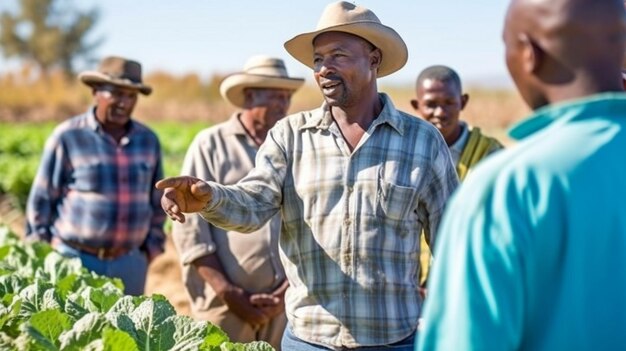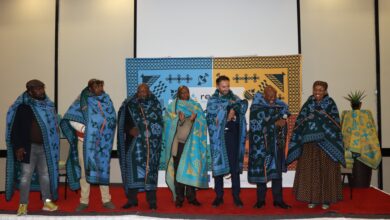MAFSN Launches Capacity-Building Initiative for Lead Farmers in Ha Thube to Boost Food Security

This week, the Ministry of Agriculture, Food Security, and Nutrition (MAFSN) launched a crucial capacity-building initiative aimed at empowering lead farmers in Ha Thube. This training is part of a broader effort to enhance agricultural practices, improve nutrition, and ensure long-term food security within the region. A similar training initiative is also taking place in Tebellong, underscoring the widespread focus on improving local agricultural practices and addressing malnutrition in Lesotho.
The capacity-building initiative is part of the Lesotho Red Cross Society (LRCS)’s nine-month project, which is funded by the Disaster Relief Emergency Fund (DREF). The project, which began in May 2024 and will run until February 2025, aims to promote better nutrition and improve food security by equipping farmers with the knowledge and skills needed to implement sustainable farming practices. A key component of the initiative is the preparation for upcoming seed distribution to local beneficiaries, ensuring that they have the tools they need to produce nutritious food.
In her address to the participants, a representative from MAFSN highlighted the importance of empowering local farmers to take a leading role in the agricultural development of their communities. “The capacity-building workshops are designed to equip farmers with the knowledge they need to implement proper farming techniques that will improve the overall productivity of their land and promote better nutrition,” said the MAFSN representative.
One of the core goals of the project is to improve food security by addressing the root causes of malnutrition. By focusing on nutrition and sustainable farming practices, the initiative aims to ensure that families are not only able to grow more food but also produce more nutritionally balanced crops. This is particularly important as Lesotho continues to face challenges related to food insecurity, with many households struggling to access sufficient and diverse food sources.
In addition to practical training, the project also emphasizes the importance of community collaboration. Lead farmers are being trained to share their knowledge and experiences with fellow farmers, creating a network of support and knowledge exchange that can help increase the reach and impact of the initiative.
The seed distribution, which will follow the training sessions, will provide local farmers with high-quality seeds that can yield a variety of crops. This, combined with the knowledge gained from the training, will increase the potential for successful harvests, thereby improving both the food security and the nutritional status of participating families.
The ongoing capacity-building initiative in Ha Thube and Tebellong represents a significant step towards improving food security and combating malnutrition in Lesotho. Through the collaboration of MAFSN, LRCS, and the support of the DREF, the project is poised to empower farmers with the tools and knowledge they need to build a healthier and more sustainable future for their communities.
Join 'Lesotho News' WhatsApp Channel
Get breaking Lesotho news — delivered directly to your WhatsApp.
CLICK HERE TO JOIN



